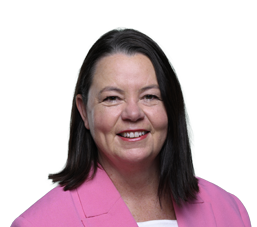Interview with David Lipson, ABC AM program
DAVID LIPSON: This time two years ago, Australia was facing an energy crisis with extreme price volatility, brought on largely by a shortage of gas. As winter draws nearer, domestic gas supplies on the east coast are still in short supply, especially in the southern states. But the government is claiming credit for a small gas surplus forecast for the months ahead. What will that mean for energy bills? Madeleine King is the Resources Minister and we spoke earlier. Madeleine King, thanks for being with us. We've gone from a forecast shortfall of gas on the east coast this winter to a small surplus of gas expected now. Will this go any way toward cheaper power bills?
MINISTER MADELEINE KING: Well, importantly, David, the ACCC's interim report onto the gas supply for the east coast indicates that surplus will be available in the latter quarter three of 2024. And the ten petajoule surplus is not that small. There's a significant amount of energy available into the system from the LNG producers in Queensland. The work that I've done in December of the year before last, 2022, reforming the heads of agreement, as well as reforming the ADGSM, combined with the code of conduct together bringing more supply available to industry and to consumers. More to your point, the code of conduct helps bring down the price available of gas to consumers. Having said that, we know there is still more work to do.
DAVID LIPSON: Yeah, there certainly is, because, yes, it's ten petajoules more than we expected, but the buffer is only six petajoules, so that's the sort of surplus. And we're talking about 500 odd petajoules that are expected to be used over winter. So, we're talking about a one per cent buffer. It wouldn't take much to be back in the midst of a gas crisis, would it?
MINISTER MADELEINE KING: Well, the thing about the reforms we've undertaken since coming to government and the provisions we've made in place is ensuring the Iona storage facility is up and running to a much better capacity than it was before. We also, I have quarterly meetings with the LNG producers, which enables me to review the supply situation as we go along. So, if that small buffer does, is indicated because of some kind of other incident, like we saw with the wet coal in the mines and different problems with coal-fired generators on the east coast the winter before last, we can work with industry to make sure that there are swaps of gas available to go into the system.
DAVID LIPSON: This winter, Queensland, in many ways will come to the rescue because the southern states are facing a 25 petajoule shortfall over winter. Is that a sustainable situation in the longer term, or should Victoria, for example, reconsider its ban on onshore gas exploration.
MINISTER MADELEINE KING: Well, there is no doubt Queensland is doing the heavy lifting in terms of gas supply for the whole of the east coast. Now, I'm not interested in criticising decisions of state governments. They make their choices. What I would say is that Queensland is doing the heavy lifting. But any gas you transport from long distances, like from far north Queensland in Gladstone, all the way down to Melbourne or the industrial estates of Victoria, it costs more money to get hold of that gas because you've got to move it through a pipeline. Or if the import terminals end up eventuating, you've got to freeze the gas and defrost the gas and transport the gas.
DAVID LIPSON: And that gets passed on to consumers and industry, right?
MINISTER MADELEINE KING: Well, absolutely, because costs always do with the production of any product, I suppose, and gas is no exception to that.
DAVID LIPSON: Madeleine King, thanks for being with us.
MINISTER MADELEINE KING: Thank you.

